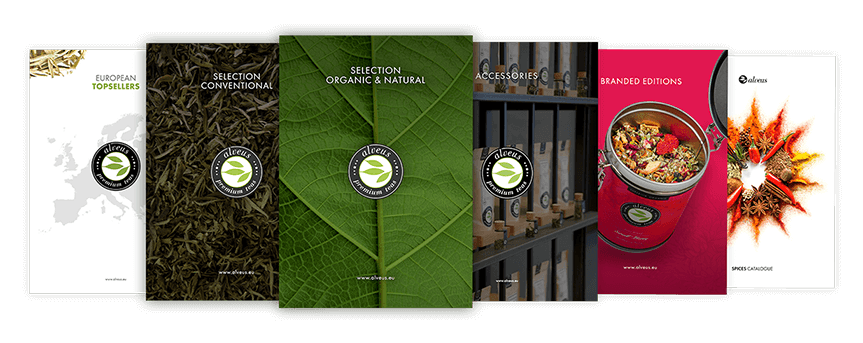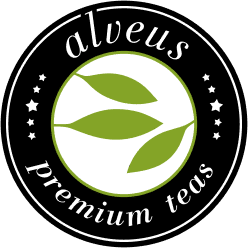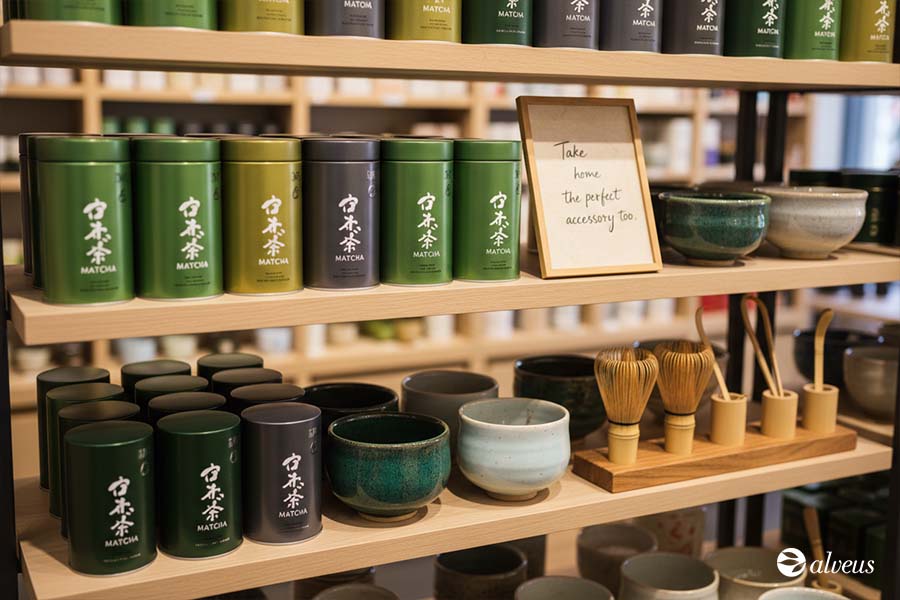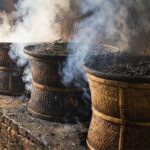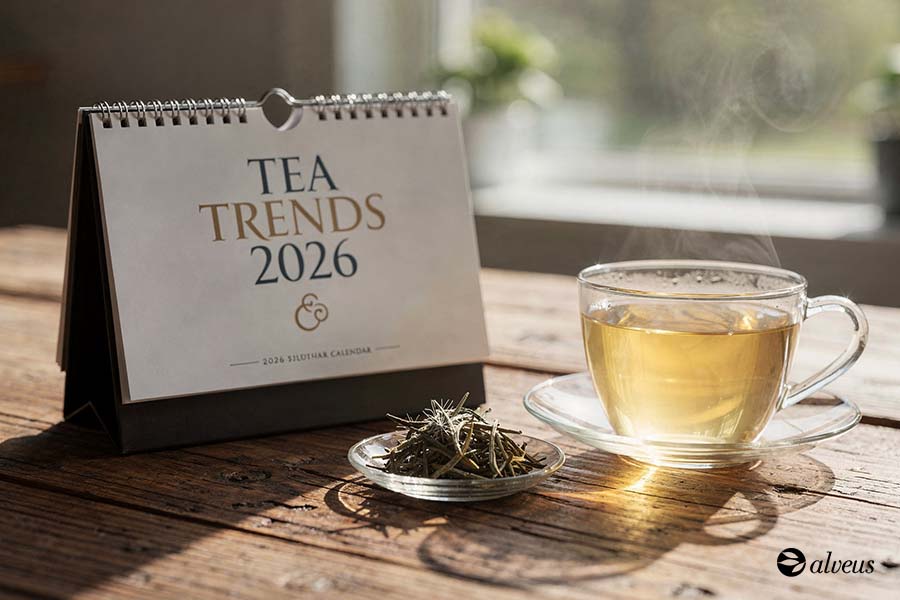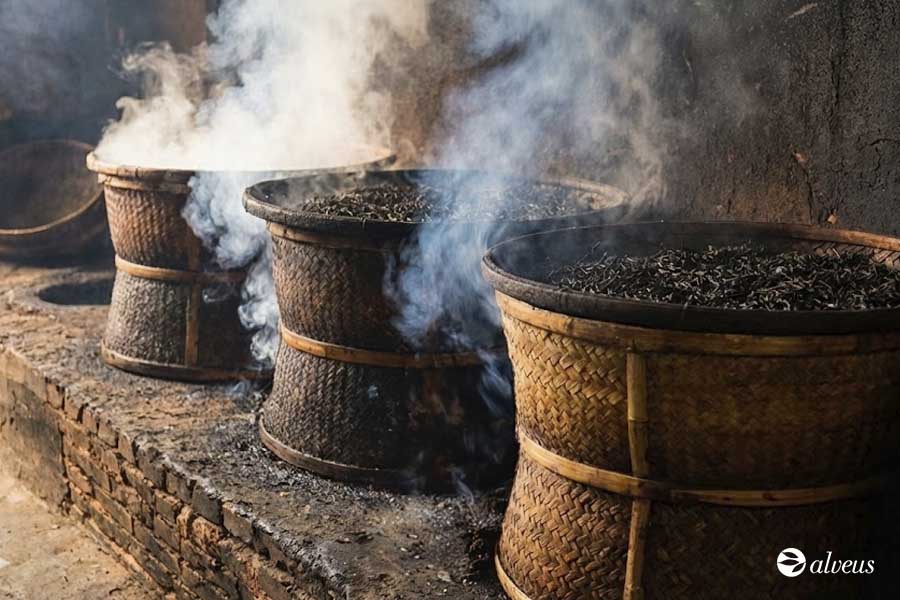Anyone who works with tea knows one thing: selling tea isn’t just about selling a product; it’s about selling an experience. The way it’s prepared, how it’s stored, the ritual that surrounds it… all of these influence how the customer perceives and remembers that moment. And that’s where tea accessories play a more important role than we sometimes realise.
When at Alveus, we talk about cross-selling tea accessories, we’re not referring to an aggressive sales tactic, but rather to a natural way of increasing your revenue while offering a better service to your customers.
It’s about recommending items that complete the experience: the tin to preserve that freshly purchased tea, the right infuser, the measuring spoon, or even the teapot that elevates the brewing ritual.
These small details help your customers enjoy their tea more, come back sooner, and, at the same time, increase their average order value effortlessly.
What Cross-Selling Means in the Tea Business
Cross-selling, or complementary selling, consists of offering the customer products that complement the ones they are buying.
In the case of tea, the example is clear: anyone who buys tea needs to prepare it, store it, serve it, or present it.
But the key is not to “offer more”, but to offer better products that make sense in the context of that purchase and meet a specific need for the customer.
For example:
- A customer buying Matcha tea may need a bamboo whisk (chasen) and a bowl (chawan).
- A gourmet shop selling loose-leaf teas can increase sales by offering airtight tins and premium doypack bags, which help customers preserve their tea at home.
- A restaurant or tearoom can improve its service with cast-iron teapots, double-walled glasses, or hot-water dispensers.
Cross-selling is much more than a commercial resource; it is a strategic tool that reinforces the perception of quality and professionalism in your business.
Why You Should Cross-Sell Accessories in Your Tea Business
There are many reasons to include accessories in your offer — and all of them are linked to profitability and customer loyalty.
First, they increase the value of each sale without the need to expand your tea stock. Sometimes, a customer who planned to spend €20 or €25 ends up buying a tin or an infuser as well, and the order becomes one of €35 or €40. If that happens consistently, the impact by the end of the month is more than noticeable.
But there’s something even more important: accessories create connection. When your customer buys both tea and the utensils to enjoy it, they are one step closer to making that habit part of their daily routine.
That cup they use every morning, or that tin they see on their shelf, carries your brand’s mark, and that makes them think of you when it’s time to restock their tea.
There’s another aspect not to overlook: accessories help you convey a refined brand image.
A well-organised shelf filled with teapots, infusers, and tins of different sizes invites customers to buy, while also communicating professionalism and good taste.
How to Apply a Cross-Selling Strategy with Tea Accessories

Don’t leave cross-selling in your tea business to chance. Ideally, you should set aside time to plan and design these offers strategically.
Then, internalise them so that they come naturally when you’re assisting a customer.
In the case of tea e-commerce, it’s even easier, as you can set up cross-selling automatically.
Some examples include:
- Matcha tea + whisk + bowl + sifter + bamboo spoon
- Loose-leaf teas + airtight tins + personalised labels
- Japanese tea + cast-iron teapot + double-walled glass
- Rooibos + paper filters (to prevent the leaves from escaping)
Essential Accessories Every Tea Business Should Have
Over the years, at Alveus, we’ve seen how certain accessories have become essential for almost any tea business.
Airtight tins in different sizes are a must; they protect the aroma and add visual appeal. Stainless-steel filters and strainers, as well as ball infusers, remain among the best-selling items.
For those who sell Matcha tea, the set made up of a bowl (chawan), whisk (chasen), spoon (chasaku), and holder continues to be a success. These are artisanal products that convey heritage and authenticity.
Cast-iron teapots, such as the Kurogane, Kinra, or Komorebi collections, combine aesthetics and functionality: they retain heat, decorate beautifully, and project a sense of quality.
And in recent years, portable infusers and cold-brew tea bottles have become new essentials for a younger audience who wants to enjoy tea on the go.
Integrating Cross-Selling into Your Point of Sale or Online Shop
Even if you can suggest complementary items directly to customers in your physical shop, a simple change in layout can dramatically increase cross-sales.
Place accessories next to the related teas. For example, position infusers beside loose-leaf teas, or bamboo whisks next to Matcha.
In your online shop, use sections such as “You may also like” or “Complete your tea experience” to recommend complementary products.
Make sure your photographs convey coherence and style.
Use Storytelling

Every accessory has its own story and purpose, so tell it. It’s not just about selling a teapot; it’s about selling a ritual. For example:
“The Japanese Kurogane teapot is inspired by the wabi-sabi philosophy, the beauty of simplicity and durability. Perfect for highlighting full-bodied black teas or roasted green teas.”
This type of language connects emotionally with professional buyers who seek unique experiences for their end customers.
How We See Cross-Selling at Alveus

For almost two decades, we’ve worked with hundreds of tea shops and brands across Europe. And we’ve learnt that success doesn’t depend solely on the tea you sell, but on how you present it and what you offer alongside it.
Many of our clients started with just a few references and gradually expanded their range of accessories based on their customers’ own questions: “Do you have filters?” “Do you sell tins?” “Do you have anything for making iced tea?”. Each of these questions becomes an opportunity.
That’s why our accessories catalogue is designed to make that next step easier for you.
It includes everything from the essentials: tins, doypacks, labels, filters… to the pieces that make a difference, such as handmade Japanese teapots, Korean ceramic sets, and wooden displays designed to let your teas truly shine. Everything a professional needs to turn tea from a simple product into a complete experience.
Our job is to help you offer your customers something coherent: tea accessories that are not only practical, but also functional and profitable.
